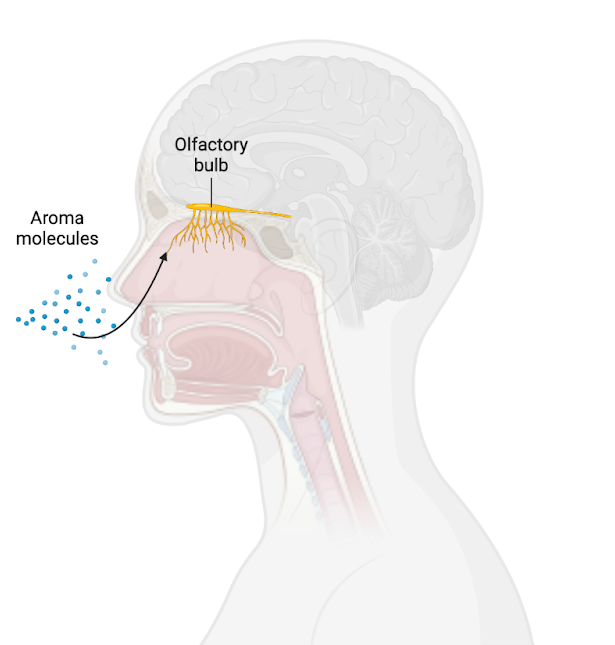by Karly Forker
Whenever I smell a specific brand of laundry detergent, I am instantly transported back to my college athletic department’s equipment room, where dozens of industrial washing machines were washing uniforms. Or when I smell warm vanilla scented perfume, I am immediately reminded of my first grade teacher, and I feel comforted.
Though seemingly niche and bizarre, I am not alone, and many of us have similar anecdotes about how a certain smell takes us back to a very specific time, location, or person. But why? The intriguing connection between smell and memory has long captured the curiosity of scientists and puzzled the minds of many.
It turns out our sense of smell, or olfaction, is closely linked to the limbic system in our brain, which is responsible for processing emotions and memories. Unlike our other senses such as sight and hearing, which rely on complex pathways in the brain to interpret information, smell has a direct route to the limbic system through the olfactory bulb. This direct connection allows scents to bypass conscious thought and tap directly into our emotional and memory centers.

Figure generated by Karly Forker using BioRender.
We can now begin to appreciate how a certain smell can trigger memories with remarkable specificity, transporting us back to a unique time and place with at times a vivid and impressive clarity. But why are some smells more memorable than others? Scientists are still trying to unravel that mystery. One theory suggests that intensity of the odor and the emotional significance associated with that odor have an effect. Strong scents associated with significant life events may be more likely to leave a lasting impression, but sometimes even the most mundane experiences, like doing laundry, can trigger a vivid memory.
To get a broader idea of why humans have such a strong link between smell and memory, let us consider how this could benefit our species. To our ancestors, being able to remember the scent of a particular plant or animal, could mean the difference between finding food or avoiding danger. Over time, this ability to link smells with critical experiences may have become deeply ingrained in our neural function, shaping the way we perceive and interact with the world around us. In short, it acted as an adaptive trait and gave us a better chance of survival.
The relationship between smell and memory is a captivating subject that many have had first-hand experience with. This phenomenon has intrigued scientists past and present, and sparked the imagination of many. Starting from its evolutionary origins, the power of scent to evoke strong memories and emotions is a testament to the remarkable complexity of the human brain. The next time you catch a familiar scent transporting you back in time, take a moment to savor the memories it brings and appreciate the workings of your olfactory system!
